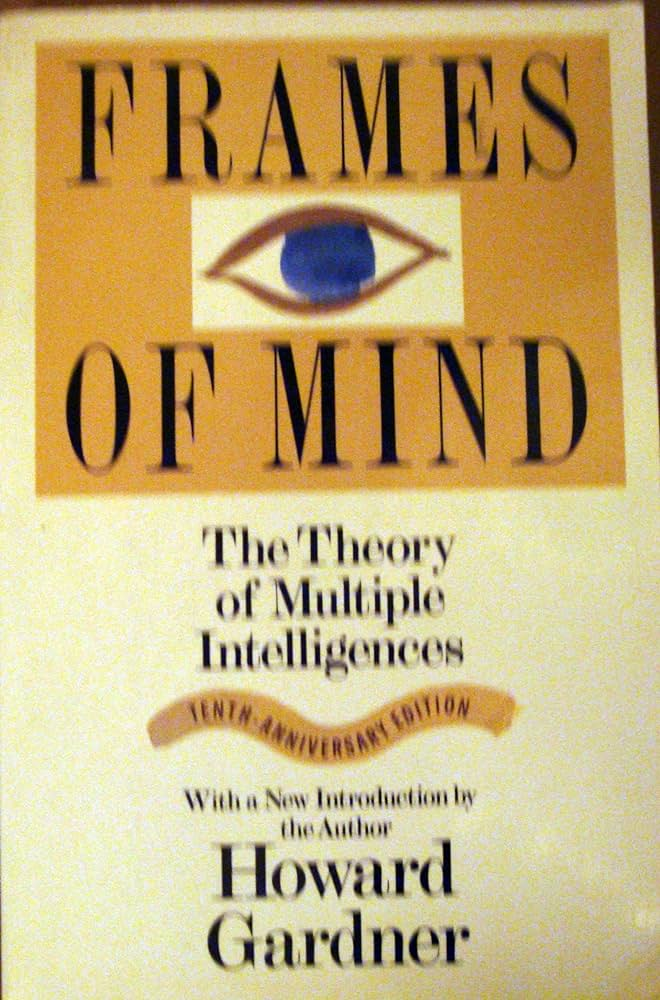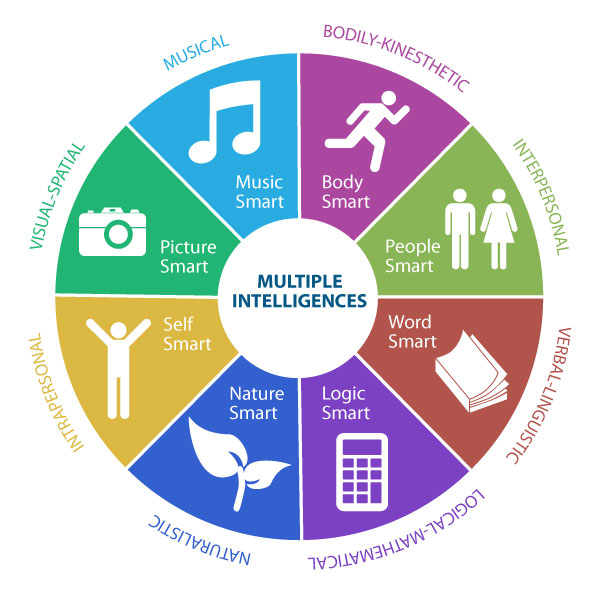Hello my dear bloggers! Today I'm here to talk about a very interesting topic, the theory of multiple intelligences by Howard Gardner. This type of post it's not really my usual type of content, but i really wanted to share this. Enjoy!
So, if you read my usual content you may know that I almost never post blogs related to anything thats not art or drawing, so to answer to that- let me give you a brief explanation.
Since (in my country) the cience projects are coming up, I had to investigate about a certain topic. So, since im an actual smart kid compared to my silly classmates, i decided to talk about the theory of multiple intelligences! And, why not also as well make a post about it? So, that drives me to this post that youre reading right now.
The theory of multiple intelligences by Howard gardner.
"The theory of multiple intelligences", or also known as "The 8 intelligence types", is a theory proposed by Howard Gardner in the book "Frames of Mind", released in 1983. Which in he writes, that we may have all these intelligences, although, this can variate depending on one's own experiences, or even genetics. This theory proposes that people are not born with all of the intelligence they will ever have.

Link
Nowadays, among society- the most valued intelligences are the linguistic and logical-mathematical types.
"What are the 8 types of intelligence?"
This type of intelligence involves not only the ability of written language, but also the ability of learning new languages, and communication. Linguistic intelligence involves the ability to use language masterfully to express oneself rhetorically or poetically. It includes the ability to manipulate syntax, structure, semantics, and phonology of language.
Logical-Mathematical intelligence.
This type of intelligence involves the capacity of analyzing problems logically, solving methematical operations, and scientific investigations. This type involves the ability to use logic, reasoning and critical thinkinh to solve problems.
This type of intelligence involves the ability to percieve the outer world accurately, to transform, modify or manipulate visua information. People with high spatial intelligence are very good when it comes to drawing, visialization, sense of direction, puzzle building and reading maps.
Bodily-Kinesthetic Intelligence.
This type of intelligence involves the ability of using one's whole body or parts of the body to solve problems or to fashion products. It involves the physical coordination, balance, strength, flexibility.
This type of intelligence involves the ability to percieve musical forms in very different ways, such as the sensitivity to rythm, pitch, or melody. As well as the ability of singing, playing instruments or composing music.
Interpersonal Intelligence.
This type of intelligence provides the ability to understand intentions, motivations and desires of others. People with high intrapersonal intelligence communicate well, as well as being able to emphatize with others.
Intrapersonal Intelligence.
This type of Intelligence provides the ability to understand oneself, the self-awareness, the ability to analyze and articulate one's emotional life. This type of intelligence can help a person understand which life goals are important and how to achieve them.
This type of intelligence involves the ability to recognize, categorize and draw upon patterns in the natural environment. People with high naturalist intelligence are good at classifying natural forms, such as recognizing and classifying the numerous species of his or her environment.

Link
Inclusion Criteria to be Categorized as a Multiple Intelligence
* Potential of isolation by brain damage.
* Evolutionary history and evolutionary plausibility.
* Identifiable core operations or set of operations.
* Susceptibility to encoding in a symbol system.
* Distinct developmental history and definable set of expert “end state” performances.
* Existence of savants, prodigies, and other exceptional people.
* Support from experimental psychological tasks.
* Support from psychometric findings.
Overall, in my personal opinion, the theory of multilple intelligences really catched my interest mainly because of the diversity of types of intelligences and the overall idea of it. Considering that for a long time, being "smart" or "intelligent" could only be archieved by being good with numbers, or being academically smart. And not only that, but understanding multiple intelligences is important because it helps us recognize that intelligence is not just about academic achievement or IQ scores, but also includes a range of different abilities and strengths.
Thats it for now, if you like this type of content please let me now, and ill make sure to post more content like this. For now, take care, and see you on my next post!
Disclaimer: all the information or data written on this post was brought from the following website: Simply Psychology



